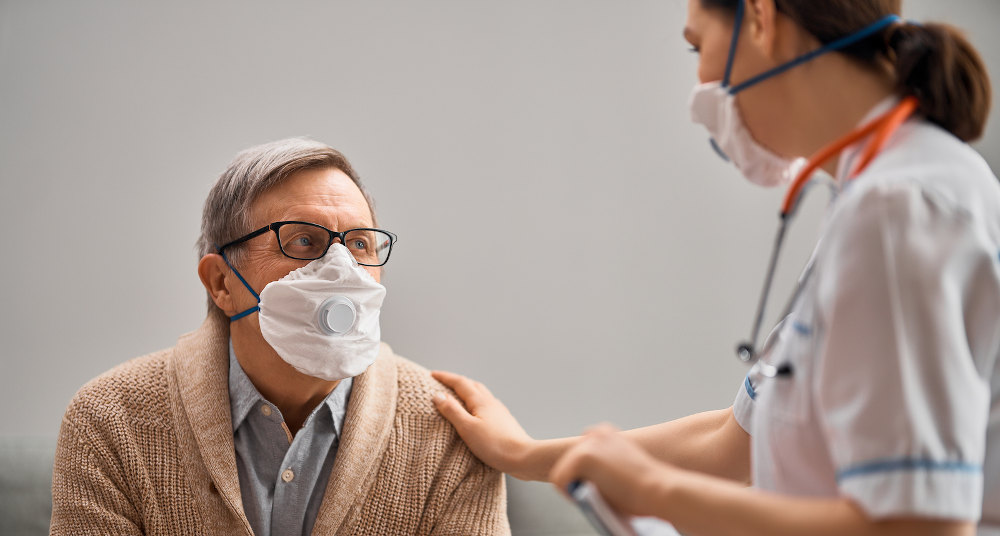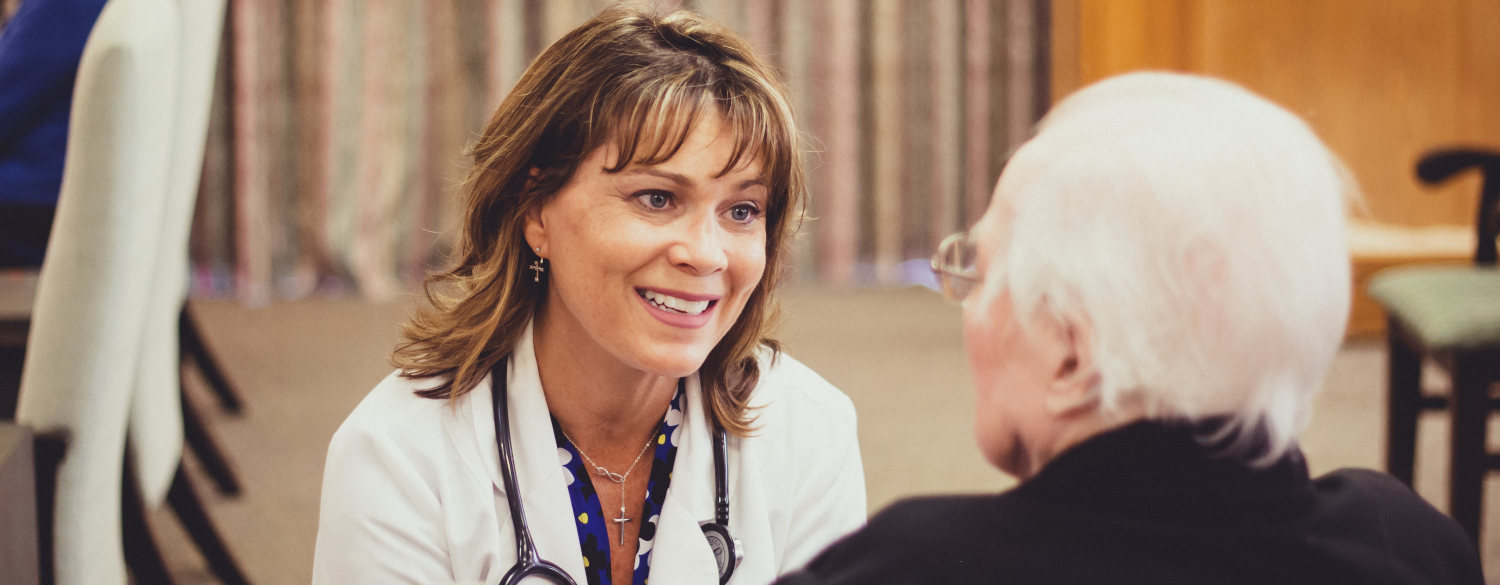Article Link – https://www.aanp.org/news-feed/aanp-state-award-for-excellence-winner-stands-for-those-who-cannot-stand
Published August 22, 2023
Become inspired by this Kansas nurse practitioner’s story advocating for the profession and prioritizing patient care.
Every year, the American Association of Nurse Practitioners® (AANP) honors deserving nurse practitioners (NPs) and NP advocates with the State Award for Excellence. This award is comprised of both the NP State Award for Excellence and the Advocate State Award for Excellence — the former is given to an NP “in each state who has demonstrated excellence in clinical practice and has shown efforts to advance the image, profile and visibility of NPs at the state level,” and the latter “is given to an individual in each state who has made a significant contribution toward increasing awareness and recognition of NPs.”
Recipients of the State Award for Excellence are individuals who have raised awareness of and advocated on behalf of NPs and the transformative, person-centered work they provide for their patients and communities. Each state, district or territory may be represented by one NP and one NP advocate. In 2023, 51 NPs and 47 NP advocates were honored with a State Award for Excellence.
Amy Siple, APRN, FNP, GS-C, is one NP who received the NP State Award for Excellence in 2023. Hailing from Kansas — one of the most recent states to pass full practice authority (FPA) — Siple was involved in the passage of that legislation both as a member of AANP and president of the Kansas Advanced Practice Nurses Association. Speaking with AANP about her State Award, Siple also discussed what she believed helped her coalition pass FPA, her passion for helping older adults and her hopes for the future of health care.
Leading in Geriatric Care
Siple found her passion in geriatrics. “That has been such a blessing,” says Siple about working within this specialty. “I really enjoy the complexity of the clientele that I care for. Every day requires me to use lots of neurons, as I’m dealing with multiple comorbidities, polypharmacy and the opportunity to impact lives.” This impact was especially felt by her patients during the pandemic. “I was one of the only people allowed to go in [to see patients],” she remembers. “My management of their multiple comorbidities was not as critical at that time as me holding their hand, making eye contact with them and listening,” she says. “They had touch starvation, and the ability to just be a physical presence became more important than my knowledge about medicine and health care.”
Securing FPA for Patients and NPs in Kansas
Kansas became the 26th state to pass FPA on April 15, 2022. NPs and other advocates for high-quality health care access had worked for a decade to turn the proposed legislation into law. “It was nothing like I thought it would be,” said Siple of the political process. “You can’t come in with a bunch of evidence and think that’s going to work. First of all, you have to just sit and listen.”
What helped make the campaign for FPA successful was — in part — coalition building, which required bringing together multiple organizations and crisscrossing political lines. “We said, ‘We are going to keep the main issue the main issue. Everybody else is politically divided in this world, but we are not going to be.’” Building a coalition, related Siple, “was a game changer.” In addition to working with AANP, Siple and other NPs “went out and we gave speeches to these organizations, we met with their leaders and pulled in 25 outside organizations to fight with us.”
In addition to showing up in person, listening to legislators and making sure her organizations included “NPs on both sides of the political aisle,” Siple stressed the importance of patience in leadership. “It can be hard to lead really independent professional people. Don’t give up and recognize that your colleagues have a lot on the line. Just stay the course and make sure that you’re listening.”
Inspiring Broader Change
In addition to her work as an NP and organizational leader, Siple is a national speaker on aging and caring for older adults. One of the goals of her advocacy, she explains, is to give the families of geriatric patients the tools they need to support their elders in the comfort of their homes before moving them to an outside provider of long-term care. “I am confident this can be done if we can come alongside those caregivers and give them real, practical tools and resources for engaging with their loved ones,” Siple says. Right now, however, “so many people just really struggle with how to manage neuropsychiatric symptoms associated with dementia in particular.”
Siple is also an advocate for mindful prescribing of psychotropic medications for geriatric patients. Working directly with other health care providers, she is able to assist them in managing certain neuropsychiatric symptoms without psychotropic medication. Siple recounts assisting one facility move from being in the 91st percentile and I got them down to the 9th percentile. “We saw a decline in the report of behaviors. I’m really thrilled to have the opportunity to maybe repeat that.”
When asked what all her work has in common — her advocacy on behalf of the elderly, for increasing health care access and more — Siple spoke of her faith. “My personal mission for my life is to serve the Lord to the best of my ability, and to positively impact those in my sphere of influence,” she said. “I used to tell my nursing students — what your role is as a nurse or a NP is to stand for people when they cannot stand, and to speak for people when they cannot speak. A big part of your job is to be their advocate.”
Nominate an NP or Advocate for a State Award
Do you know an NP who you believe should be recognized for excellence in clinical care, or an NP or advocate who should be recognized for increasing awareness and recognition of NPs? If so, consider nominating (or self-nominating, if the NP or advocate is you!) a deserving individual for the 2024 State Award for Excellence by Sept. 11. Nominees are not required to be members of AANP, but they cannot be current AANP elected leaders. Recipients of this prestigious award will receive either an AANP membership or an extension on an existing membership, and many other advantages related to the 2024 AANP National Conference.




